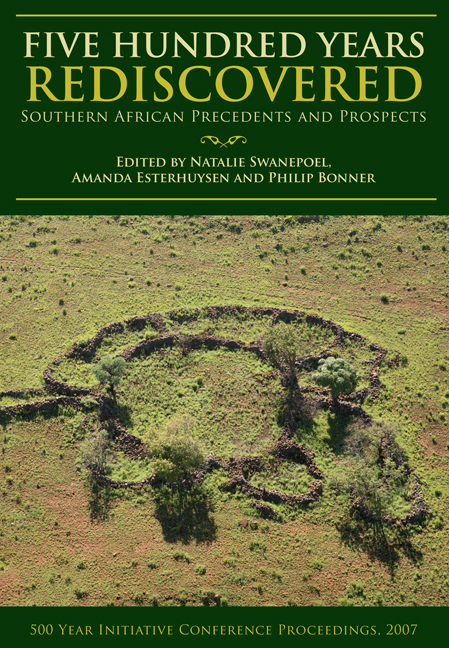Book contents
- Frontmatter
- Contents
- Preface
- 1 Introduction
- Section 1 Disciplinary Identities: Methodological Considerations
- Section 2 Material Identities
- Section 3 ‘Troubled Times’: Warfare, State Formation and Migration in the Interior
- 12 Rediscovering the Ndwandwe kingdom
- 13 Swazi oral tradition and Northern Nguni historical archaeology
- 14 Mfecane mutation in Central Africa: a comparison of the Makololo and the Ngoni in Zambia, 1830s-1898
- List of contributors
- Index
13 - Swazi oral tradition and Northern Nguni historical archaeology
from Section 3 - ‘Troubled Times’: Warfare, State Formation and Migration in the Interior
Published online by Cambridge University Press: 30 May 2019
- Frontmatter
- Contents
- Preface
- 1 Introduction
- Section 1 Disciplinary Identities: Methodological Considerations
- Section 2 Material Identities
- Section 3 ‘Troubled Times’: Warfare, State Formation and Migration in the Interior
- 12 Rediscovering the Ndwandwe kingdom
- 13 Swazi oral tradition and Northern Nguni historical archaeology
- 14 Mfecane mutation in Central Africa: a comparison of the Makololo and the Ngoni in Zambia, 1830s-1898
- List of contributors
- Index
Summary
Introduction
The Swazi Kingdom has been depicted in studies by Kuper, myself and others as something ‘sui generis’ (Marwick 1940; Kuper 1947; Matsebula 1972; Bonner 1983). Starting life as some kind of cross-breed between a refugee and a conquest state, it fused a disparate set of chiefdoms, cultures, languages and even economic practices into a single syncretic unit, albeit divided into three distinct strata each enjoying differential status and access to resources. Interpreted in this manner, the late 18th century/early 19thcentury Swazi Kingdom stands apart from, or in between, the much more centralised and homogenous Zulu Kingdom or state to the south, and the highly variegated Sotho chiefdoms or paramountcies further west, which have been conventionally viewed as more loosely organised but culturally cognate. Certainly, as I understood it thirty years ago, it commanded attention because of its unusual ancestry, which gave it its singular atypical hybrid character and, potentially, its own ambiguous historical vocation.
Surprisingly little concerted or sustained attention has been paid to the precolonial African histories of the 18th and early 19th centuries in South Africa since the early 1980s, and even less to a systematic effort to compare and to calibrate them. Hamilton (1985) and Wright (1989) have made two of the few major contributions in this regard, showing, among other things, the comparative heterogeneity of the Zulu Kingdom/state, and its internal structuring into distinct strata, moulded along analagous (but more disguised) lines to those employed by the Swazi. A handful of other studies have examined the internal structures and dynamics of African polities elsewhere (Makhura 1993; Lekgoathi 2004). Aside from them, the precolonial African history of this area has been most extensively and illuminatingly explored by archaeologists (see for example Loubser 1981, 1988; Pistorious 1992; Schoeman 1997; Hall 1998; Boeyens 2003). Despite some important shafts of insight that they have thrown on this subject, however, these still remain all too few, as other epochs have by and large attracted more attention. These absences are unfortunate since a closer study of the history of the last 400 to 500 years may well hold the key to understanding and reinterpreting many current South African identities.
- Type
- Chapter
- Information
- Five Hundred Years RediscoveredSouthern African precedents and prospects, pp. 239 - 256Publisher: Wits University PressPrint publication year: 2008



